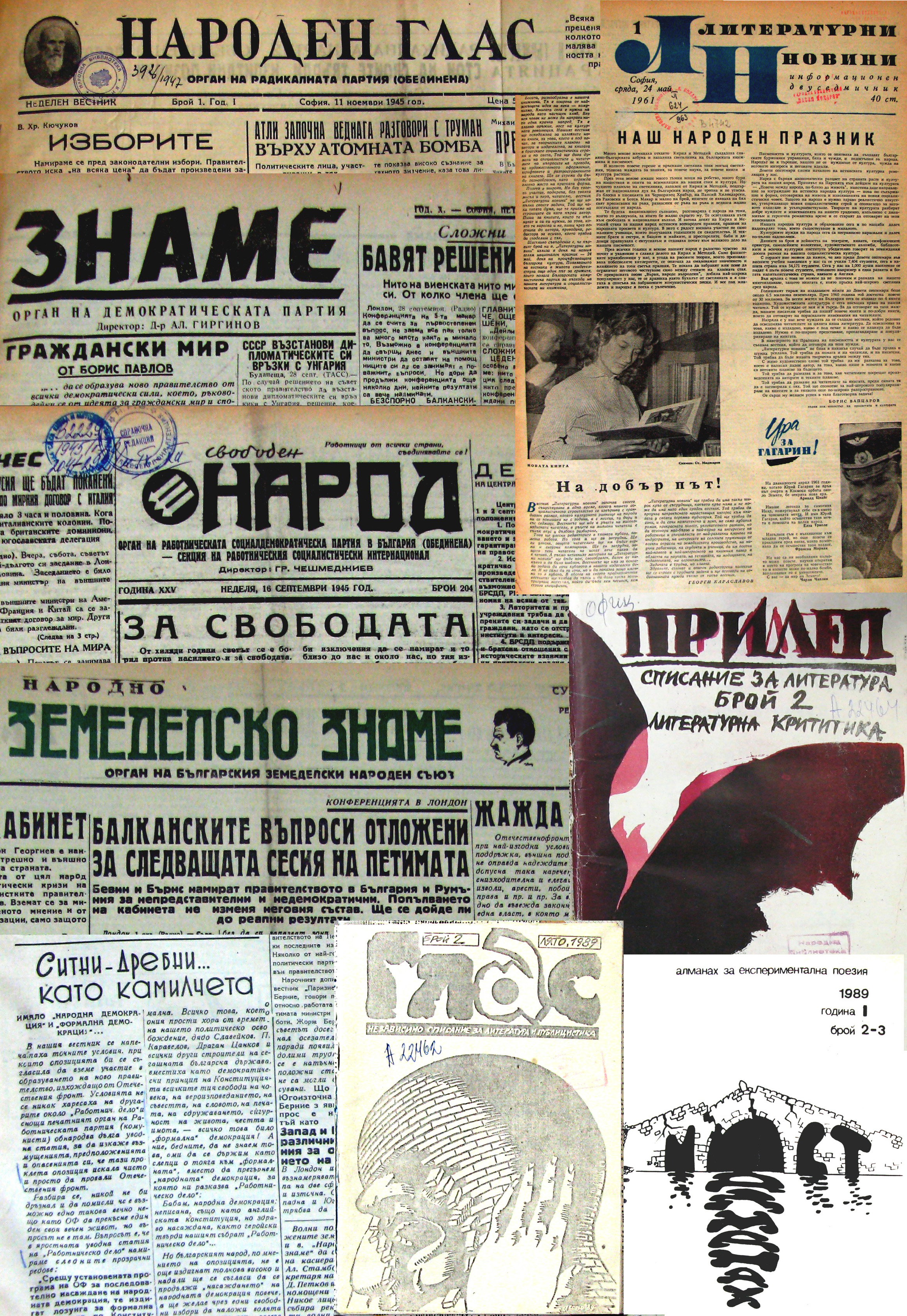After the establishment of the so-called Fatherland Front Government in Bulgaria on 9th September 1944, drastic changes in the institutions that created, published and distributed periodicals, books and documents began. The creation of an official censorship institution - the Ministry of Propaganda (MP from September 1944 to 11th December 1947, renamed from 1 January 1945 to Ministry of Information and the Arts), was of particular importance for the policy of the new power over book publishing and press.
The Ministry of Propaganda took over the coordination of all the control and prohibition measures in respect of books and the press issued on the territory of the country. With a special decree of the new government of 6 October 1944 the access to certain books and periodicals with "Pro-German, fascist and racist character" became prohibited. In the State Library "Vasil Kolarov" (today's National Library) special commissions were established, which created lists of books and magazines subject to destruction, forbidden to free access and for official use only. These "forbidden" publications make up the nucleus of today's collection.
In 1946, a special Law supplement to the Press Act of 1921 was adopted to "legalize" the suspension of opposition newspapers as well as editions that could "harm the state’s general interests, create moods dangerous to the public order and tranquility or to disturb our relations with foreign countries "(State Gazette, issue 97, 30 April 1946).
In 1947, the Communist government liquidated private property, printing and publishing houses were abolished, the opposition's press was banned (the newspapers Radical, People’s Agrarian Flag, Free People, Flag, People's Voice). Massive "purges" in the organizations of the Bulgarian journalists were undertaken, journalists were arrested, sentenced and sent to prisons and forced labor camps, some - killed. Thus, the new type of journalism with the function of being a collective organizer, propagandist, and agitator of the new system, was imposed.
At the end of 1947, a new state body was established, the Committee on Science, Art and Culture, which formally took the place of the Ministry of Information and the Arts, and in its composition was closely linked to the Agitation and Propaganda Department of the Central Committee of the Communist Party and the Ministry of Interior. In 1950, the General Directorate of Publishing Houses, Printing and Print-Trade Industry (1950-1956) was set up to draw up lists of "harmful literature" in Bulgaria, following the example of Glavlit in the Soviet Union.
Throughout the whole period of state socialism, the comprehensive vertical and horizontal press control system have been preserved. Glavlit officially ceased operations after the 1956 April 1956 Plenum, but the lists of "harmful literature" were not canceled. Unofficially the activity in this direction continued, even adding or compiling new lists of "decadent" literature. Nevertheless, authors and editions managed to circumvent censorship and publish in one or another edition texts with concealed or more open anti-totalitarian content. There were many cases of sanctions - individual dismissals of journalists and/or (temporary) suspension of periodicals. Samizdat periodicals did not appear in Bulgaria until the 1980s.
For the name of the collection is used a phrase of the editor-in-chief of the journal "Literary News", Stefan Prodev, told in 1964 as the newspaper became banned: "Only the forbidden newspapers will be remembered!" The ad hoc collection was established as such in 2016. It covers banned and staged newspapers and magazines from the time of state socialism, Samizdat magazines, and the journal "Prilep. Journal of Literature" (1990). The latter was established after the political change in 1989 but included in the collection because, for the first time, it published author-dissidents. The collection is very important for studying censorship practices and attempts to avoid them, in the press in Bulgaria during the socialist period.

